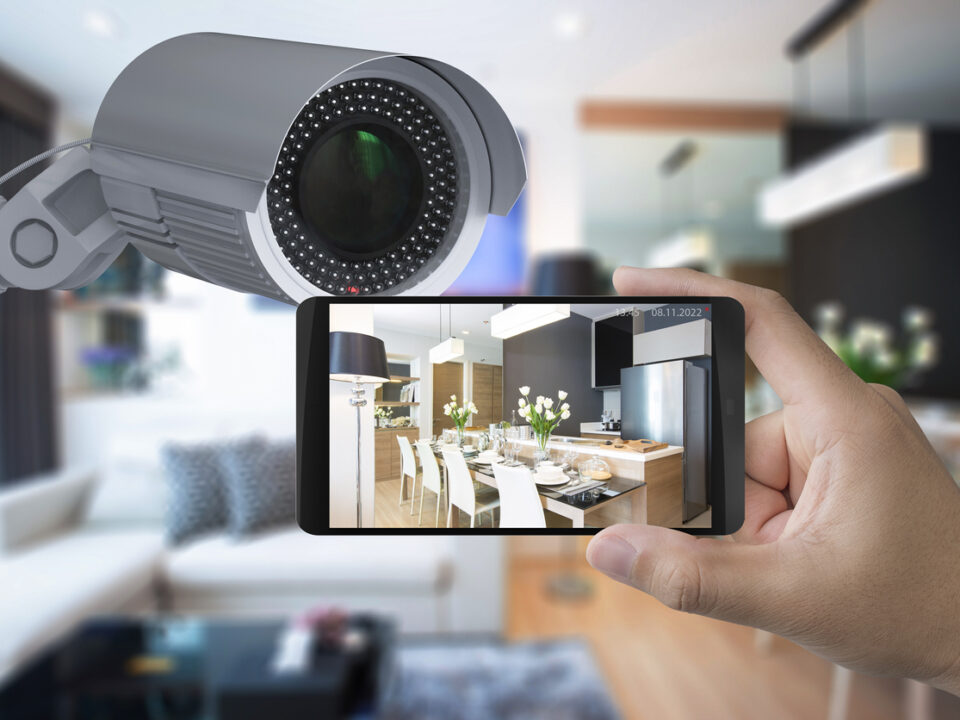What’s the Difference Between IP Cameras and CCTV?

Which is better, CCTV or IP camera?
IP cameras are internet protocol cameras, which is to say that they use a technology called “internet protocol” to get their job done. They send and receive data through packets of information broken into smaller pieces, sent along with the internet to their destination, and reassembled at the other end. (This is known as packet-switching.)
CCTV—closed-circuit television—uses closed circuits to send images from a specific location to monitoring stations. Commercial CCTV Systems can be used in security situations or for surveillance purposes, and they’re well-known for being very effective at catching criminals in the act.
Are our IP cameras considered CCTV?
IP cameras are a type of CCTV camera—they use the internet to transmit information and images. IP cameras offer many advantages that you would not find in traditional CCTV systems. For one, they offer greater flexibility in recording and monitoring. They are easy to access remotely, so you can monitor your property even when not on-site. But only if you have a secure network. This can be great for small businesses where the owner isn’t always present at the business—or homeowners who travel a lot and want to make sure their home is safe while they’re away.
Another advantage of IP cameras is their easier plug-and-play installation. You don’t need to invest in additional video storage equipment or cables and wires from each camera to the DVR system—everything is transmitted over the internet, so all you need is an internet connection. This will allow one person to set up an IP camera system without getting other people to do it.
Finally, IP cameras are generally less expensive than traditional CCTV systems, making them more affordable for homeowners and businesses looking for security solutions that fit their smaller budgets.
What’s the difference between IP cameras and CCTV?
Ip cameras and CCTV are different, but a good way to think about it is that the IP camera is a digital version of the CCTV. The former is an analogue surveillance system, and the latter is a digital surveillance system with a ton of extra features.
There’s no clear winner when it comes to IP cameras vs CCTV. The two types of cameras offer completely different benefits, and in many cases, you’ll want to use them side-by-side for the most effective security setup.
The main difference between CCTV and IP cameras is that, while CCTV cameras connect directly to a Digital Video Recorder (DVR), IP cameras connect to a network. That network may be a local one in your home or business, or it may be the internet itself. In both cases, you can access the footage from anywhere globally as long as you have an internet connection. That makes IP cameras more convenient than CCTV systems for remote access.
What are the advantages of IP cameras?
First of all, let’s clarify the difference between the two types of cameras. IP stands for Internet Protocol, a communications protocol used to allow devices to communicate over a network. IP cameras are connected directly to your network and can be viewed on any device with an internet connection. CCTV stands for closed-circuit television, and they are not connected to a network. They broadcast their signal over a closed circuit and cannot be viewed on any device except the hooked monitor.
One advantage of IP cameras is that you can view them globally as long as you have an internet connection. CCTV cameras can only be viewed on particular monitors and must be placed in specific places within the building. Another advantage of an IP camera is that it offers higher image quality than CCTV systems. Finally, IP cameras allow two-way communication and audio transmission, unlike CCTV systems that do not offer those features.
How long do IP cameras last?
IP cameras are also more cost-effective than their analogue counterparts because they do not require expensive equipment like coaxial cables or power lines. However, the signal is not always reliable on IP cameras—especially if you’re using an internet-based setup rather than a local one—so CCTV is still the best choice if you need constant monitoring for critical applications like bank security. On top of that, IP cameras are much more expensive than their analogue counterparts and are likely to need replacing sooner than CCTV due to wear and tear on their digital components.
CCTV vs IP camera – Which one to consider?
Digital IP cameras have some advantages over standard CCTV systems, such as better image quality, easier storage and retrieval, more flexibility in networking capabilities, remote monitoring and control, quicker processing speed, and support for more than one monitor at a time.
Let’s start with the basics.
An IP camera is a closed-circuit television camera that transmits video to a specific computer network or set of networks. It also handles compression and decompression of the video to be sent over wide area networks, like the internet. A CCTV camera is one component of a closed-circuit television system, which includes a series of monitors and cameras to record activity in and around a place of business or residence. While an IP camera sends its signal over a private network, it can still be accessed by anyone with permission to view the streams—which means you can view your cat sitting on your couch from any device with internet access.
Here are a few points to consider:
– IP cameras are better than CCTV because they’re newer and have cooler features, but they’re also more expensive.
– CCTV cameras are less expensive than IP cameras but not as sophisticated.
– Both IP and CCTV cameras have advantages and disadvantages that make them better for different uses.
– If you need security in an area that’s hard to see or where there might be a lot of movement. Then an IP camera might be better suited for you than a CCTV camera.
We get it. We’ve seen enough procedurals to know you’re either a CCTV or an IP camera person. It’s like a classic “SVU” episode where one detective tries to solve the case from the victim’s perspective, and the other detective wants to go through the footage that may or may not be grainy.
Let’s back up for a second: when we talk about CCTV, we’re talking about closed-circuit television, a video camera that feeds into a display monitor. In contrast, IP stands for Internet Protocol, which is how devices communicate with each other on the internet. An IP camera connects to your WiFi network so that you can access the feed remotely. That’s why it’s easy for us to tell you that if you want ultimate control and flexibility over your surveillance system, you should go with an IP camera. If you want something simple and easy to install, go with CCTV. IP cameras and CCTV cameras both provide high-quality security footage, and they can be used together to create a more secure network.


